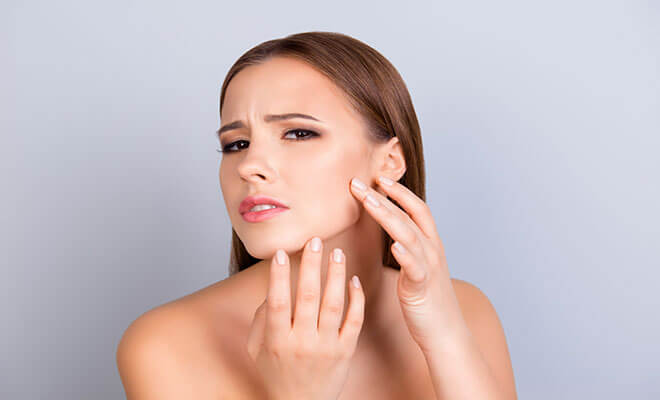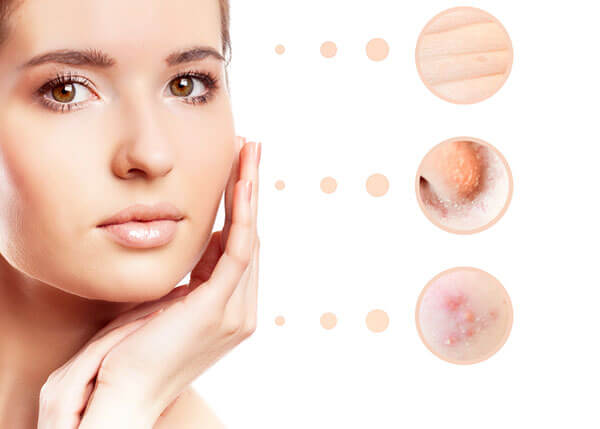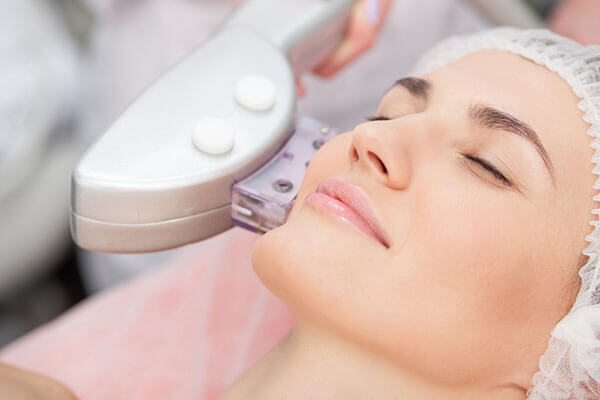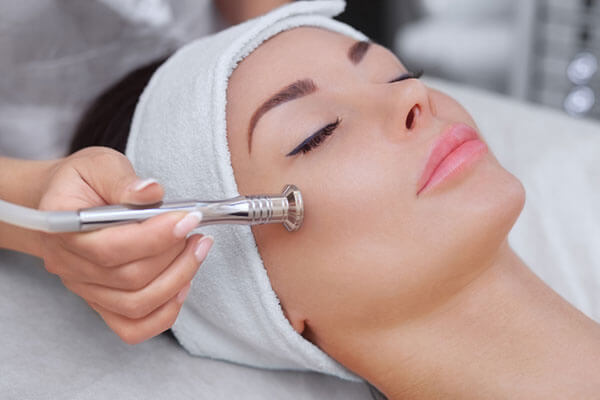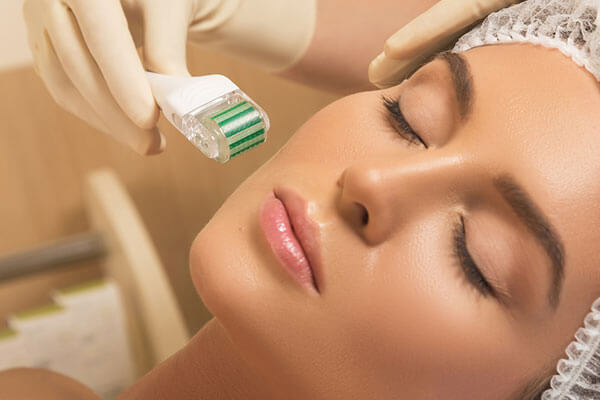Even though you do not like to remember your past pimple experiences, they often leave your face with marks and bumps that make them hard to forget.
Acne scars can be really depressing, especially depressed acne scars that take a lot of time and effort to remove.
These are the scars that look like pits and punctures into the skin.
They are also very apparent, can leave your skin looking rough, can persist for many years, and may worsen as you age.
But what are the causes of depressed acne scars? What can you do to get rid of them? How can you prevent them?
For the answers to these questions and more concerns about acne scars, continue reading below!
What Are The Types Of Acne That Can Lead To Scarring?
Treating acne is very important to prevent scarring.
However, some types of acne such as those listed below make it almost impossible to avoid acne scars.
Severe Cystic and Nodular Acne:
- These are types of inflammatory acne that are often painful, red, and swollen.
- These also include papules, pustules, and larger skin lesions.
- Inflammatory acne tends to penetrate deep into the skin, which damages the skin.
Inflammatory Acne That Is Left Untreated:
- The longer inflammatory acne is left untreated, the more likely you will develop scars.
Acne That Shows Up In Younger People:
- Developing acne during your preteens usually worsens into severe acne that leaves acne scars.
- Dermatologists suggest getting a dermatologic exam for preteens to address their acne before it becomes severe.
Acne That Runs In The Family:
- Acne can also be genetic. Therefore, if you have blood relatives who had acne that resulted in acne scars, you are at higher risk to develop them.
- Acne that was popped squeezed or picked at.
- These actions worsen inflammation and skin irritation and damage, all of which increase the chance of scarring.
Related: Fade Your Acne Scars Using a Tangerine Peel-DIY Facial Toner
What Are The Types Of Acne Scars?
Acne scars can either be depressed or raised. Depressed acne scars, also known as pitted acne scars or atrophic scars, are scars that look like pits, depressions, or sunken recesses in the skin usually found on the face.
Atrophic scars on the face are due to the loss of supporting structures like muscle or fat under the skin.
These depressed acne scars on cheeks occur in places rich with the protein collagen, which can hinder the proper repair of the deep scars.
What Kind Of Acne Scarring Do I Have?
There are three major types of depressed acne scars: icepick, boxcar, and rolling scars, which also commonly occur in combination with each other.
Boxcar Depressed Acne Scars:
- Boxcars are broad and boxy depressions on the skin that form due to very little collagen production during the wound healing process.
Ice Pick Acne Scars:
- True to their name, ice pick scars are very deep puncture holes in the skin that appear as though it has been stabbed with many small ice picks.
- This is due to insufficient collagen supply during the healing of local skin injuries.
- They can also result from the infection of the opening of sebaceous glands. They are usually the hardest to correct and remove.
Rolling Acne Scars:
- Rolling scars get their name due to their smooth edges that make the skin look like a series of rolling valleys and hills.
Combination Scars:
- Most people develop all three types of scars in combination with each other.
- In this case, all factors must be taken into account when looking for a treatment.
- Multiple treatment methods may also be required.
What Causes Depressed Acne Scars?
Acne scars appear when the skin, along with the underlying tissue, is damaged. Depressed acne scars can also happen during the healing process if the body fails to produce enough collagen to repair the damage.
Raised scars, on the other hand, maybe due to an overproduction of collagen.
Many risk factors also contribute to the formation of acne scars. These include:
- Hormonal imbalance:
This is a common problem during puberty years and is also what causes post-menopausal acne in adult women.
It can also occur due to periods, pregnancy, and menopause. Hormonal imbalance often refers to the high levels of androgens that enlarge the oil glands and increase oil production, increasing the risk of inflammatory acne development.
- Your Diet:
Certain types of foods like dairy and carbs have also been known to trigger or worsen acne scarring.
- Medications:
Some medications like hormone pills, corticosteroids, or lithium influence the balance of hormones and oil production, which can aggravate acne.
- Stress And Depression:
These also cause hormone imbalances that worsen acne and other skin conditions.
What Ways On How To Treat Depressed Acne Scars?
If you’re wondering about what’s the best way to treat acne scars, well, it depends on the cause and type. There are many treatment options available for depressed acne scars like:
- Scar surgery
![Scar Surgery To Treat Depressed Acne Scars]()
Scar Surgery To Treat Depressed Acne Scars – Image/Shutterstock
This is the most invasive and least effective way how to get rid of adult acne. It involves surgical removal of scars. It also requires a long period of healing.
- Laser skin resurfacing
![Laser Skin Resurfacing]()
Laser Skin Resurfacing – Image/Shutterstock
This involves treating the skin with strong, concentrated light beams to remove visible scars.
- Fillers
![Fillers To Reduce Depressed Acne Scars]()
Fillers To Reduce Depressed Acne Scars – Image/Shutterstock
Dermal fillers are used to plump up depressed parts of the skin, reducing pitted acne scars.
- Microdermabrasion and chemical peels
![Microdermabrasion and Chemical Peels]()
Microdermabrasion and Chemical Peels – Image/Shutterstock
These processes help fade acne scars by removing the outermost skin layers to reveal smoother, clearer skin underneath.
- Microneedling
![Microneedling To Smooth Depressed Acne Scars]()
Microneedling To Smooth Depressed Acne Scars – Image/Shutterstock
Microneedling is the process of creating tiny, localized wounds on the skin to boost collagen production and activate the skin’s healing mechanisms.
This way, the portion of the skin underneath the depressions is filled with collagen for an evener texture and appearance.
What Home Remedies Can You Do To Get Rid Of Depressed Acne Scars?
While many of these treatments are effective, they can also cost a lot of time and money. Fortunately, some of the best acne clearing products can be found at home. Examples are:
1. Aloe Vera Gel
Aloe vera contains vitamins and antiseptic, antibacterial, and anti-inflammatory properties that help regenerate and heal damaged tissues.
Just cut an aloe vera leaf, extract the gel, and apply it to the problem area for about 30 minutes before rinsing with water.
Do this twice daily for tighter, smoother, glowing skin.
2. Baking Soda
This is a gentle exfoliant that can help remove the outer dead skin cell layer.
Just mix it with a little water to form a paste and massage this on your face for ten minutes.
Wash off and follow with a moisturizer. Do this 2 to 3 times per week.
3. Tea tree oil
This is a natural antibacterial, antiseptic, antifungal, and antiviral essential oil that helps heal acne scars.
Use diluted tea tree oil on acne scars two to three times daily.
4. Apple Cider Vinegar
ACV balances the skin pH and the skin’s sebum production that contribute to acne formation. It also has anti-inflammatory and antibacterial properties.
Use it pure or diluted in some water to apply to acne scars once daily.
5. Honey
This is a good healing, nourishing, and moisturizing agent.
Just massage honey with a dash of cinnamon powder on your face, let it rest for ten minutes, and rinse off.
Other natural treatments for depressed acne scars that you can find at home are potatoes, lemon, rosehip oil, sugar scrubs, cucumbers, olive oil, and raw tomatoes. These can be used as masks or spot treatments.
Read Next – Benefits of Turmeric To Treat Acne Naturally For Beautiful Clear Skin
Any Tips On How To Prevent Depressed Acne Scars?
As we always say, prevention is better than cure. So, what can you do to avoid acne scars? Just simply follow these tips to reduce enlarged pores and prevent acne and scarring.
- Continue your skin treatment even after your acne clears. Not only will this prevent scarring, but also maintain your skin’s appearance.
- Do not pop, squeeze, prick, or pick at pimples or acne. This can cause the spread of bacteria that can lead to infections, inflammation, and worse acne scars.
- Practice a gentle skincare routine. Use a mild, non-abrasive, and non-comedogenic cleanser to avoid enlarging your pores and irritating the skin.
- Avoid scrubbing your skin especially if you already have acne. This can only worsen the condition and lead to permanent scars.
- Be mindful of what you eat, drink, and apply to your skin. Take note of possible triggers that may be causing your acne and avoid these at all costs.
Related: 9 Easy Makeup Tips For Pitted Acne Scars and Nodular Acne – Learn the Causes, Treatment And Prevention
FAQ’s:
Que: Can depressed acne scars go away?
Ans: No, acne scars do not go away entirely on their own.
Que: What helps with depressed acne scars?
Ans: Dermatologists use fillers to safely and effectively plump depressed acne scars.
Que: Does vitamin C fade acne scars?
Ans: Yes, it improves the appearance of scars caused by acne.
Conclusion
While some of us are at more risk than others, depressed acne scars can be hard to avoid.
It requires self-discipline, willingness, and a lot of time and effort.
If you already have acne scars, you can also opt for many different effective depressed acne scar treatment methods or home remedies.
Remember, the earlier you address the problem, the less likely for it to get worse.
 By Wendy Gould
By Wendy Gould
